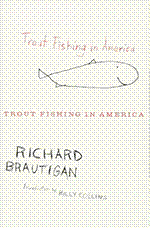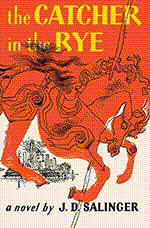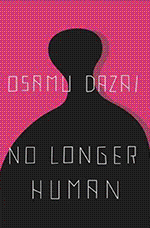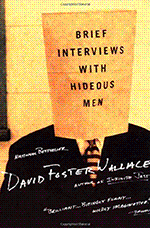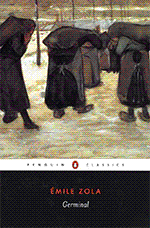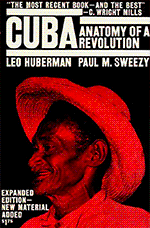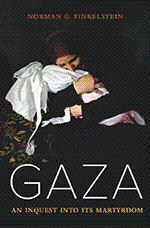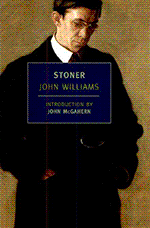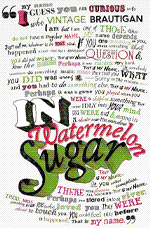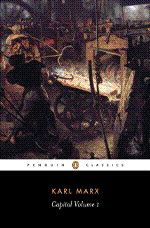Trout Fishing in America by Richard Brautigan is by far the strangest thing I've ever read. It's not really a book about 'anything'. The book is segmented by these short, wacky stories, usually revolving around a character called Trout Fishing in America, and most of them are about trout fishing. . . in America.
Brautigan has a unique and quirky writing style, and funny too! The first oddity that popped out to me was the 'main character' of the story and his name: Trout Fishing in America. At first, it was hard to really grasp why this character is named that, and why it's never explained why. But after a while, you just have to let the book's wackiness take you along for the ride.
From what I can tell, there really is no coherent 'plot'. There are recurring characters, such as Trout Fishing in America (obviously) and Trout Fishing in America Short (a different person) and Trout Fishing in America's wife and Trout Fishing in America's daughter. There are also recurring themes, such as trout fishing and mayonnaise. Perhaps I am too stupid to understand why these particular things keep showing up -- what are they allegories to? -- but also they might just mean nothing at all.
The charm for me, mostly, is the fact that most of the stories have a sort of magical whimsy to them. It's not 'realistic' per se, but it reflects 'realism'(?) Through the first couple of chapters I thought I had a pretty firm grasp on the book: child-like narration of Trout Fishing in America's of strange happenings; that was until I reached the story "Sea, Sea Rider". This story sobered me for the rest of the book. Essentially, Trout Fishing in America is coerced by a bookstore owner into having sex with a girl stranger that the bookstore owner picks up from the street, accompanied with her presumed husband. I read through it, pretty disgusted, and was disillusioned by the end, in which the bookstore owner, after their intercourse -- the act witnessed by the husband -- makes up a weird, seemingly nonsensical story about what happened.
That story kind of set me up for everything after that. Nothing ever that disgusting happens again in the book, but throughout Trout Fishing in America's (and other's) whimsical narrations of fantastic events, the air of an underlying moral depravity remains.
Something that makes this particular novella notable to me is the fact that it sort of resonates the same way that Adventure Time does (which I was watching at the time). Both have these fantastical worlds and strange characters and weird rules that you just have to accept. Both also have moments of sobering maturity and moral depravity -- the episode where Lumpy Space Princess rapes has sex with Finn comes to mind -- as well as an underlying history of the world that doesn't get expanded upon, and doesn't have to. Perhaps that connection isn't as coherent in writing than it is in my head, but it's a connection that resonates with me nonetheless.
This was a strange read, but immediately shoots up to one of my favorite reads. I did some digging on Brautigan's history and he apparently led a very troubled, sad, traumatic life. It's fascinating to me how someone who goes through as much hardship as him could still tap into that childlike whimsy in his writing. His history could also explain the bluntness to morally shitty stuff that is described in the book.



